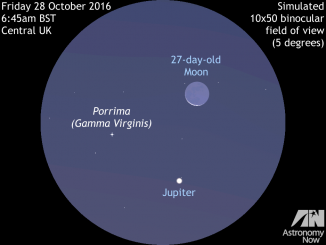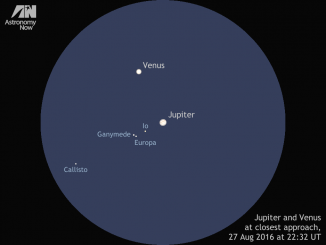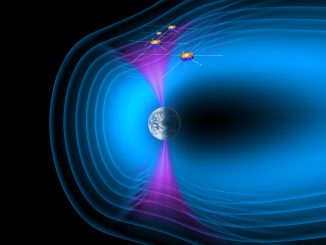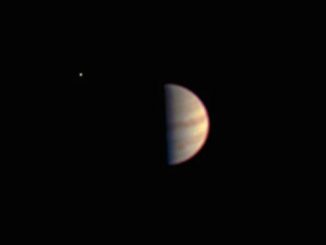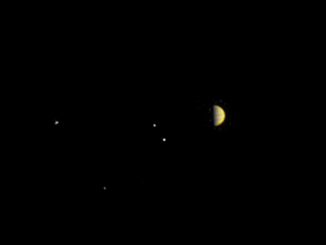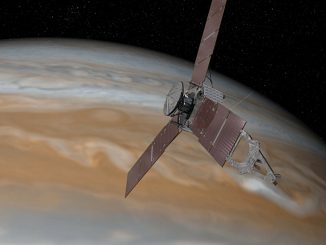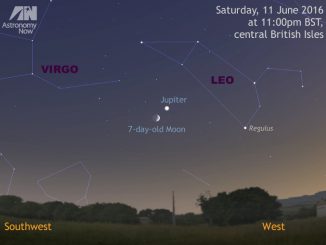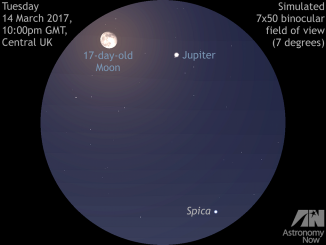
See the Moon and largest planet Jupiter get close on 14 March
Jupiter is now less than a month from opposition (7 April), so it’s very much open season for the Solar System’s largest planet. If you’re unsure where to find it, the rising 17-day-old waning gibbous Moon passes just two degrees from Jupiter on the UK evening of 14 March. Virgo’s brightest star, first-magnitude Spica, makes it a great binocular triumvirate.


